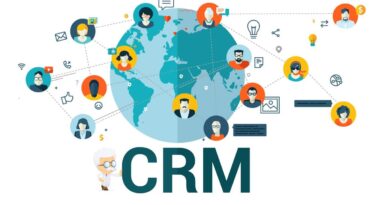IT sector is prepared for growth opportunities and challenges in the sense of ‘fresh normal’
Experts in the industry said that the pandemic had driven digital transformation for several years. And IT companies are now pushing their digital services further, as technology is built into advertising, customer support and businesses. The COVID-19 may have thrown balls this year, but the USD 191 billion Indian IT sector has shown resilience and, as digital spending meets the challenge of the ‘new normal,’ 2021 promises more progress.
A dramatic increase in the number of corona cases earlier this year resulted in lockdowns by governments in various countries, including India. This presented Indian IT companies with two challenges – how to maintain customers business continuity, and how to ensure their employees’ safety. The first hiccups happened, but nearly 98 per cent of workers worked at the lockdown peak in India. Internet transferred internal meetings, client engagements and city halls.
“2020 has been a year of tremendous change and volatility…(but technology has become even more integral, not just an enabler. Nasscom Senior Vice President and Chief Strategy Officer, Sangeeta Gupta said: “We have been able to transition to a new hybrid operating model with fewer downtimes for our global customer, which show tremendously well the Indian IT industry’s capabilities.
She further claimed that clients admire the industry’s resilience and that even IT firms remain agile and business starving. The pandemic may have an impact close to that seen during the financial crisis in 2008. It was concerned. The global health disaster raised fears that consumers could save money by reducing their IT budgets.
As new taxation began, conservative viewpoints were introduced to IT superiors – right from Tata Consultancy Services and Infosys to Cognizant. They said that all campus deals are honoured, but pay increases and promotions have been stopped. Infosys and Wipro have suspended their practice of offering an unpredictable market climate for revenue growth.
As compared to the financial crisis in 2008, which tied technology and the economic crisis and technology investment decreased amid economies, technology adoption grew much faster than economics and enterprises in 2020.” It reiterates that the relation between technology and economic downturns will be integral to future growth and digital is not so good to have, but a must,” said Gupta. “There is a strong correlation between technology and economic downturns.
While 2020 is a tough year, companies such as Infosys and Wipro have concluded multi-million and even billions of dollar deals. Also, dealings were concluded such as 100% of shares purchased by TCS of Deutsche Bank AG by Postbank Systems AG (PBS), in which about 1,500 PBS employees switch to TCS.
Cloud adoption this year has developed steadily, and lagging industries such as healthcare and education are currently leading to digital adoption. These institutions use technology to help students attend the classes via smartphone and give patients digital consulting for non-emergency conditions since schools and colleges have shut down. Hospitals have large numbers of people infected with coronaviruses.
Experts from the industry have said that the pandemic has accelerated digital transformation for years to come. And IT firms are pushing their digital services even further as technology is built into sales, customer support and businesses.
However, cyber-attack cases have also risen in several ways, underlining the need to improve their businesses’ IT systems. Such threats could impact the consumer experience and the brand image. Work from home (WFH), the ‘new standard,’ is predicted to become a key factor in the corporate strategy as the pandemic continues and vaccines are still underway. It remains to be seen if 15 or 50% of people can function remotely, but hybrid models are undoubtedly part of the post-vaccine future.
CEO Salil Parekh recently said that the future place of work would be hybrid.”Flexibility remains crucial, and even when we move forward, once we get past COVID, the flexibility would help our employees work from different locations at different times……we think that the idea of social capital is significant since we have developed different models.
Though business continuity was the industry’s priority, the Government has also played a vital role in promoting this ease of work. It strengthened its policies for the remote activity for services that support IT and IT to reduce their compliance burden and not only encouraged ‘home work,’ but also ‘works from anywhere.’
The industry embraced this as a step towards greater inclusion by bringing into the workforce people from smaller cities and women who have left the country for different reasons. The industry has done so. To give citizens free rations, health care and other main services during the lockdown, the Indian Government, which employed technology to provide citizen services, continued to bet on mobile and other technologies.
The year also was a crucial one for the US sector – the largest IT company market in the world – when presidential elections took place. Over the year, Donald Trump’s administration has put some limitations on H-1B visas to limit the opportunity. Joe Biden has won and will be the 46th President of the USA on 20th January. The sector is waiting for the chief to take a visa approach.
Gupta said that India and the United States’ relationship should be viewed beyond H1-B Visas, as Indian IT firms build thousands of local jobs and skills and help businesses remain competitive. Indeed qualifying, as 5G and the emergence of smarter devices unleash a new era of growth and opportunities, Indian technology companies focus on new areas of expertise.
As the data becomes all too omnibus, 5G and intelligent devices can turn and simplify client experience into a seamless and hyper-personalized commitment, GlobalLogic Senior Vice-President and Head of APAC Sumit Sood said.”…2021 is to bring more hope and attract companies into their core business plan to include digitization and investing in IT infrastructure.
During the course of our changing reality, companies will have a great deal of value in automation, clustering and remote technologies, and delivery models All as a Service (XaaS) will form the next technology process to provide scalable solutions to mass adoption,” he added. IT companies as Infosys, Wipro, and Tech Mahindra booked charter flights to take home workers and their families, who were stuck in foreign countries due to pandemics and visa problems.



